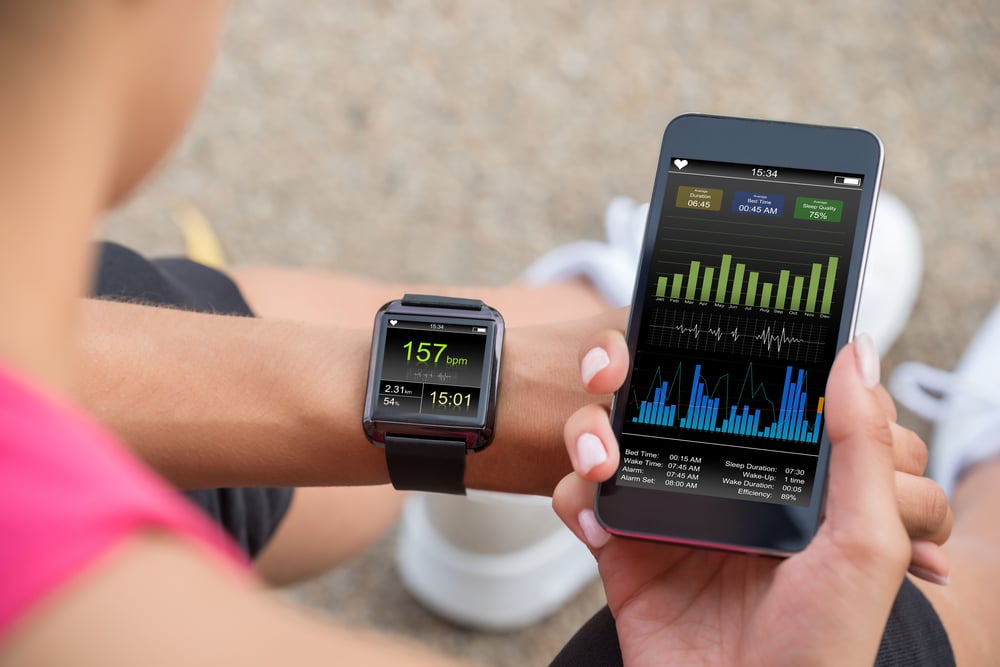
March 27, 2025
Do Fitness Trackers Actually Work?
SHARE
It seems everywhere you turn there’s a new high-tech wristband that is supposed to monitor your activity level, sleep patterns and caloric burn.
The wearable fitness technology industry has exploded and is a $45.66 billion industry.
Most trackers count steps and measure sleep patterns but some models also measure heart rate, blood oxygen level, skin temperature, perspiration, and body mass. The great appeal of these gadgets lies in their ability to offer insights into the inner workings of our bodies.
Are they Accurate?
To a degree. If you wear three different brands of fitness bands, you’ll end up with three slightly different step counts. There can be a difference of up to 22% between the actual number of steps taken and the steps recorded by these devices.
Keep in mind that if the tracker gets your activity level wrong, the number of calories burned will also be wrong.
These gadgets are getting much better at measuring everything, including sleep patterns. Some models are better than others and make assessments based on wrist movements, heart rates, and more. But even so, they are not accurate 100% of the time.
Why It Doesn’t Matter!
Before you throw away your fancy fitness tracker that costs a couple of hundred dollars or more, you should know that these trackers DO work – even if they’re not scientifically accurate.
The most important thing is not their accuracy but their motivational qualities.
We all know we should exercise more and sleep better but it’s not easy to stay on track.
These gadgets constantly remind you of what you’re supposed to be doing. Every time you turn on your phone you see your latest stats! You can even connect to a group and see your friend’s stats if they have a similar device.
At the end of the day, it doesn’t matter that your 10,000 steps may not actually be 10,000 steps. You’re still going to do all you can to hit that 10,000-step goal on your wristband! It gives you the motivation to go the extra mile.
The other reason why fitness bands are so popular is because they provide unbiased feedback. It’s very tempting to overestimate your activity level or the number of calories burned. But a tracker keeps you honest.
Should You Buy a Fitness Tracker?
It’s possible to enjoy all the benefits of fitness bands without spending hundreds of dollars. Your smartphone, with the right apps, can be just as accurate as a fancy wristband.
However, fitness bands are more convenient, especially when you’re running or biking. The last thing you want is to drop your phone and pay more to have it repaired than it would’ve cost to buy a basic fitness tracker.
In the end, it’s up to you to decide whether you need a tracker. You can always use your cell phone until you make your decision. But besides the cost, what’s the downside of giving a fitness tracker a try? If it changes the course of your health journey in a positive direction, I’d say it’s worth every penny!
